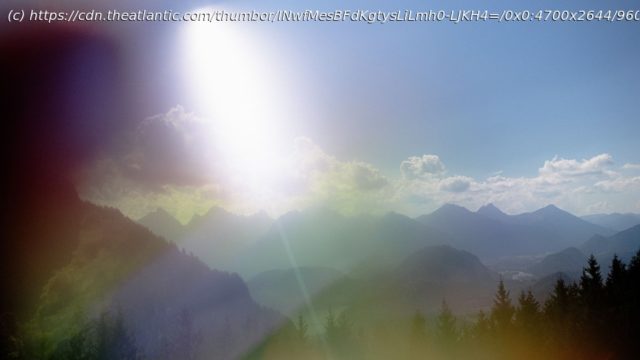When we see ourselves in the context of wonder, it makes us humbler.
“Of all the forces weakening liberal democracy today,” the political theorist William Galston writes, “its defenders’ naïveté about human motivations may be the most dangerous.” Galston’s concern centers on what he calls the “dark passions”—captured by the title of his new book, Anger, Fear, Domination—and how they are fueling today’s attacks on liberal democracy.
“Rational self-interest does not always drive human events, the passions matter, and evil is real,” Galston argues. “The dark side of our nature is here to stay.”
We saw that with the horrifying political assassination last week of Charlie Kirk, one of the right’s most influential activists. The dark passions in America have been unleashed as well by Donald Trump, an accomplished demagogue. He is unlike anything America has faced before; he has made cruelty fashionable, and his rule is threatening the country’s institutions, the rule of law, and liberal democracy itself. Of course, Trump isn’t alone in stoking the dark passions; they aren’t exclusive to any single political group, any single nation, any single religion. Hate, including lethal hate, doesn’t respect borders or boundaries. It can take up residence in any tribe.
Those who wish to understand politics “need a psychology as rich as the political life they seek to comprehend,” according to Galston. And the “triadic psychology” that focuses on sentiments such as empathy, solidarity, and love leaves too much out. Galston lists ameliorative policies and institutional reforms as important steps that need to be taken, but adds that speech is indispensable.
“The only counterweight to bad speech is better speech that challenges the darkness within us in the name of our higher aspirations,” Galston writes. “The future of liberal democracy rests on the bet that these aspirations have not vanished from our souls.”
Galston is making the right bet. But right now the dark side is winning, and our higher aspirations need to be reawakened.
AWE IS A COMPLICATED EMOTION, in part because it isn’t usually a single feeling but a blend of several. It’s often evoked by being in the presence of great beauty, something powerful and sublime, mysterious and even overwhelming. It can elicit amazement and veneration. And because awe transcends ordinary experiences, because it sometimes exceeds our understanding, it can be difficult to describe
“When I play, I feel the vibration in my heart,” the cellist Yumi Kendall told Dacher Keltner, a psychologist who studies awe. “It is beyond language. Beyond thought. Beyond religion. It is like a cashmere blanket of sound.”
The science of awe is, relative to other fields, still in its infancy, so there’s much we have to learn. But the research we do have indicates that a sense of awe can have positive effects on individuals, including calming down our nervous system, reducing feelings of anxiety and stress, and lowering inflammation markers in the body.
Awe provides us with a greater sense of purpose and meaning. It encourages an appreciation for beauty and creativity.






